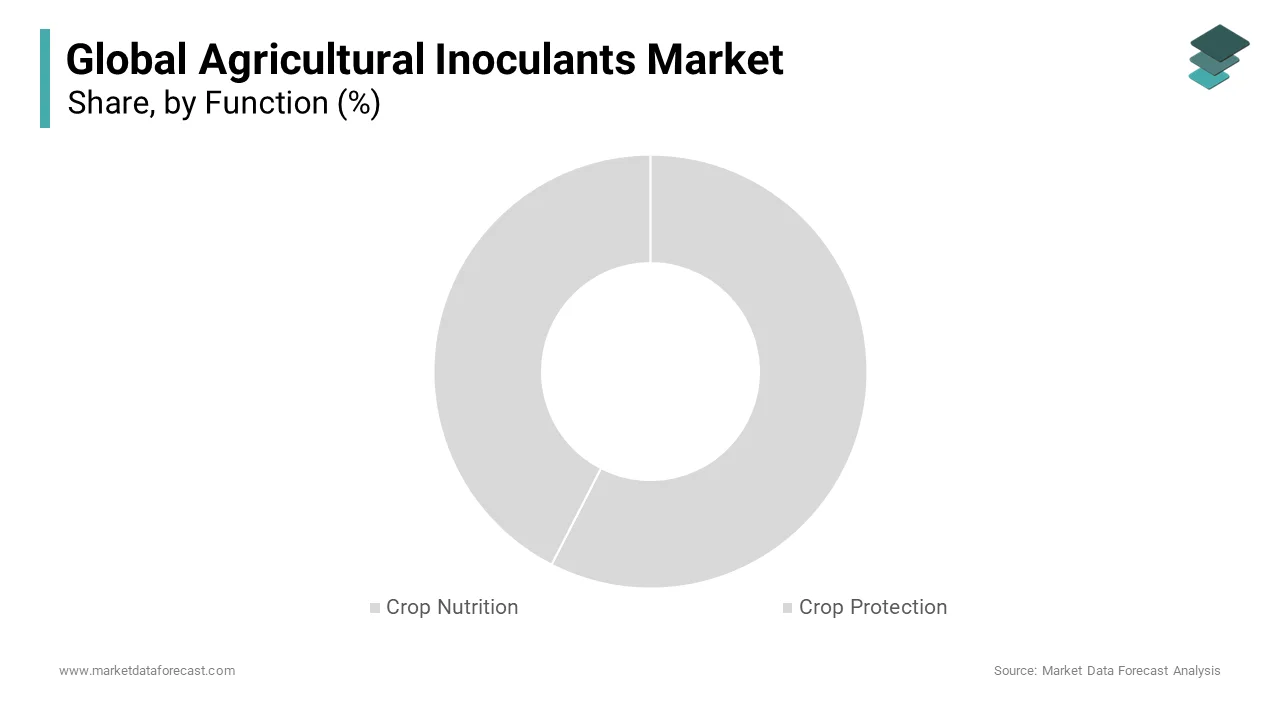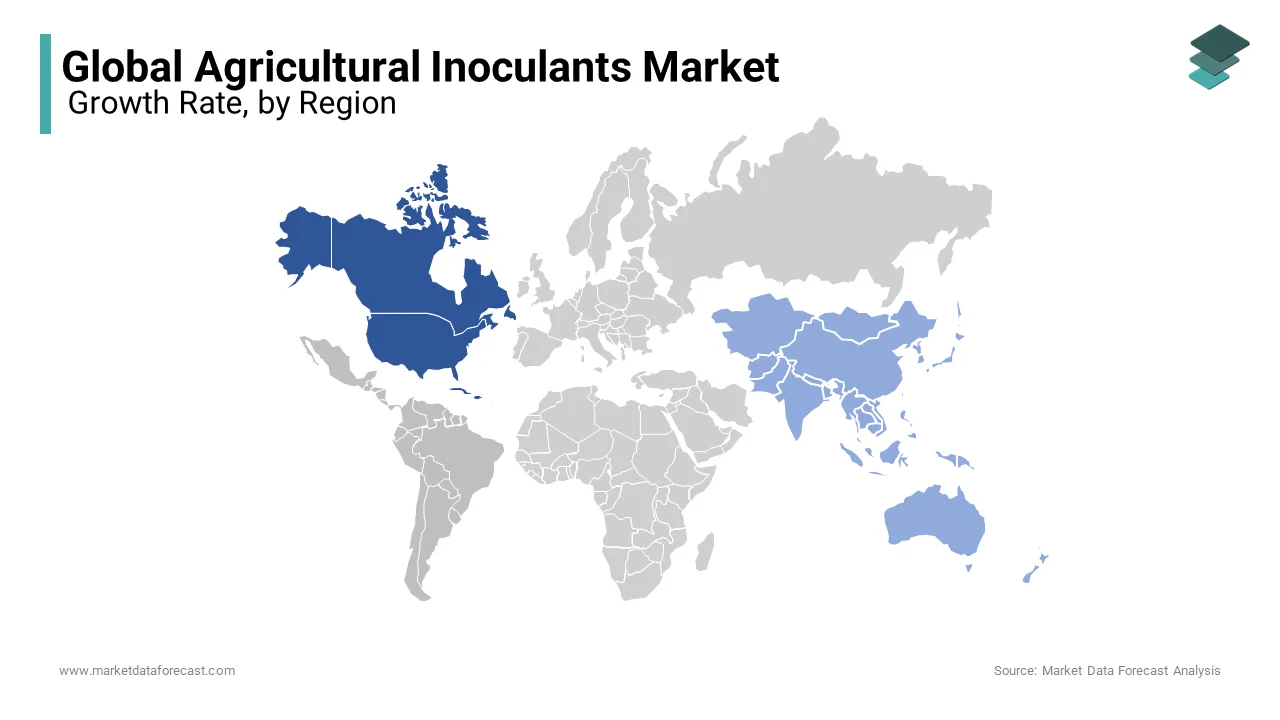Global Agricultural Inoculants Market Size, Share, Trends & Growth Forecast Report - Segmented By Function (Crop Nutrition, and Crop Protection), Microbe (Bacterial, Fungal), Crop (Oilseeds & Pulses, Cereals & Grains, Fruits, Vegetables, Forage), Application (Seed Inoculation, Soil Inoculation) and Region (North America, Europe, Asia-Pacific, Middle East & Africa, Latin America) - Industry Analysis (2025 to 2033)
Global Agricultural Inoculants Market Size
The global agricultural inoculants market was valued at USD 1.38 billion in 2024 and is anticipated to reach USD 1.52 billion in 2025 from USD 3.27 billion by 2033, growing at a CAGR of 10.6% from 2025 to 2033.

CURRENT SCENARIO OF THE GLOBAL AGRICULTURE INOCULANTS MARKET
Agricultural inoculation refers to the process of adding effective bacteria to the host plant seed before planting it in the soil. The inoculation helps ensure that there is enough of the correct type of bacteria present in the soil so that a successful legume-bacterial symbiosis is established. Inoculation is the process of introducing the appropriate Rhizobium bacteria to the soil in numbers to have successful nodulation. This process is done by either coating the seed with liquid or peat-based powder inoculants or by treating the soil with granular or liquid inoculants’ Speific pulse crop requires specific Rhizobium species for nodulation. Inoculation helps fix nitrogen in the roots of crops, which helps produce good crops and reduces the use of chemicals and fertilizers. Agricultural inoculation is required for these categories of crops, such as Oilseeds & Pulses, Cereals & grains, Fruits, Vegetables, and Forage. The rising concern towards organic agriculture drives the growth of this market in the forecast period between 2022 and 2027.
MARKET DRIVERS
The driving force of the agricultural inoculants market is raising awareness regarding the loss of chemical fertilizers and pesticides around the globe.
Generally, chemical fertilizers and pesticides are used in various agricultural processes to provide nutrition and protection to the crops from insects, disease, and harmful weeds. To meet the demand for food security of the rising population, agrochemicals are applied in large quantities, but the agrochemicals accumulate in the soil, plant parts, and air, which leads to contamination of soil that affects the agricultural as well as the environment. Therefore, farmers are adopting agricultural inoculants to reduce soil contamination and yield nutritious and quality crops.
The growing adoption of organic farming worldwide drives the growth of this market. Farmers are adopting organic agriculture to grow organic and chemical-free crops with the help of microbes.
Moreover, the demand for organically produced goods is significantly increasing, presenting opportunities for organic farmers and directly fuelling the growth of the inoculation market in the forecast period. Countries like the U.S., India, Spain, Italy, Australia, etc, are contributing to the growth of the inoculation market as these countries prefer inoculants as bio-fertilizers and bio-controls for agriculture.
MARKET RESTRAINTS
Farmers in some countries are still not aware of or have limited knowledge about the benefits of agricultural inoculation, or some farmers are not willing to take risks during their crop production, which is limiting the growth of this market.
Impact Of COVID-19 On Global Agricultural Inoculants Market
The agricultural inoculants market is majorly held by some key players such as Converta (U.S), BASF (Germany), Bayer (Germany), Novozymes (Denmark), and Verdesian Life Sciences (US). The major companies have their own manufacturing as well as service facilities around the globe in various countries of the region, such as Asia-Pacific, Europe, North America, South America, and the Rest of the world. The pandemic has affected their business to some extent, but there is no such significant impact on the global operations and supply chain of their agricultural inoculation products.
REPORT COVERAGE
|
REPORT METRIC |
DETAILS |
|
Market Size Available |
2024 to 2033 |
|
Base Year |
2024 |
|
Forecast Period |
2025 to 2033 |
|
CAGR |
10.6% |
|
Segments Covered |
By Type, Source, Application, Crop Type, and Region |
|
Various Analyses Covered |
Global, Regional, & Country Level Analysis; Segment-Level Analysis, DROC, PESTLE Analysis, Porter’s Five Forces Analysis, Competitive Landscape, Analyst Overview of Investment Opportunities |
|
Regions Covered |
North America, Europe, APAC, Latin America, Middle East & Africa |
|
Market Leaders Profiled |
Corteva (US), BASF (Germany), Bayer (Germany), Cargill (US), Novozymes (Denmark), Verdesian Life Sciences (US), Advanced Biological Marketing Inc. (US), BrettYoung (US), Precision Laboratories, LLC (US) |
SEGMENTAL ANALYSIS
Global Agricultural Inoculants Market By Function

Based on function type, the crop nutrition segment is going to dominate the market in the forecast period. Agricultural inoculants have the ability to minimize the negative impact of chemical input and consequently increase the quality and quantity of crop production. Moreover, the inoculants are used as bio-fertilizers in order to increase soil fertility. They are environment-friendly and can help deliver plant nutrients to plants in a more sustainable manner.
Global Agricultural Inoculants Market By Microbe
Based on microbe type, the fungal segment is expected to have the fastest growth rate in the projected period because fungal inoculants help plants absorb phosphorus and other nutrients for use. The fungi named mycorrhizal lives in plant roots and is well known for its ability to provide phosphorus to plants. However, the bacterial microbe is also expected to grow in this period because bacterial microbe as species of Rhizobium, Azospirillum, Azotobacter, Bacillus spp, and Pseudomonas can be used for a wide range of applications either as a bio-fertilizer or bio-pesticide. Additionally, various companies have started investing in the production of a blend of bacterial species with other plant growth-promoting microorganisms.
Global Agricultural Inoculants Market By Crop
Based on crop, the cereals & grains segment is going to dominate the market in the forecast period. The cereals & grains include wheat, corn, barley, and rice crops. The high adoption of inoculants by several countries like the U.S., Spain, China, and Brazil for cereal crops such as corn, wheat, and rice drives the growth of the market as the U.S. is the major wheat-producing country. Wheat ranks third majorly produced crop in the U.S., following corn and soybean. Brazil is also the largest producer of corn and is ranked among the top producers of corn at the global level.
Global Agricultural Inoculants Market By Application Method
Based on the application method, the global agricultural inoculants market is segmented into seed inoculation, soil inoculation, and others. Seed inoculation is expected to hold the largest market share as seed inoculation is very important in order to yield nutritious and quality crops along with crop protection. Seed inoculation is a much easier method of agricultural inoculation and is highly preferred in the US and European countries. Soil treatment is preferred in Asia-Pacific and Latin America because of the high adoption of inoculation as a bio-fertilizer in crops like corn, rice, sugarcane, soybean, etc.
REGIONAL ANALYSIS
North America has accounted for the largest share of agricultural inoculants in production and consumption. North America is putting its effort into developing new agricultural technologies and successfully applying those technologies in domestic farming systems. Mostly, agricultural inoculants are used in oilseed crops and maize. In the United States, planting soybean inoculation is the most used, and the U.S. is the largest producer of wheat, so the demand for agricultural inoculation is rising in this region, which in turn boosts the growth of the agricultural inoculation market soon. Additionally, by considering the market potential of the agricultural inoculants in this region, companies are investing more to gain a stronger foothold in the market for catering to the soaring demand.

South America is estimated to have healthy growth in this market in the coming years due to the huge adoption of agricultural inoculation in countries like Brazil and Argentina.
According to FAO, Europe has the second largest agricultural area under organic agriculture, which will propel the growth of the inoculants market in this region. Moreover, some of the European countries like Spain, Italy, and France are large consumers of microbes as bio-fertilizers and bio-control agents.
In the Asia-Pacific region, the driving force for the growth of the inoculants market is countries like India, Australia, and China, which have a large area for organic agriculture. Also, the large area for rice cultivation requires bio-fertilizers for nitrogen fixation as well as bio-control microbes for the cultivation of fruits and vegetables.
KEY MARKET PLAYERS
Corteva (US), BASF (Germany), Bayer (Germany), Cargill (US), Novozymes (Denmark), Verdesian Life Sciences (US), Advanced Biological Marketing Inc. (US), BrettYoung (US), Precision Laboratories, LLC (US). Some of the market players dominate the global agriculture inoculants market.
RECENT HAPPENINGS IN THIS MARKET
- In October 2020, Univar Solutions Inc. announced the addition of three new Novoenzymes BioAg inoculants named BioniQ, TagTeam BioniQ, and Optimize LV to the NexusBioAg portfolio. of crop biological and fertility products. NexusBioAg is a division of Univar Solutions which is an exclusive distributor of Novozymes inoculants in Canada.
- In April 2019, Bayer launched a new industrial biological soybean inoculant in Brazil, the “CTS 500”. The CTS 500 is a solution platform that brings together the biological inoculation of selected bacteria with high efficiency and nitrogen fixation in order to provide the largest number of nodules in the main roots.
MARKET SEGMENTATION
This research report on the global agricultural inoculants market is segmented and sub-segmented into the following categories.
By Function
- Crop Nutrition
- Crop Protection
By Microbe
- Bacterial
- Fungal
By Crop
- Oilseeds & Pulses
- Cereals & Grains
- Fruits
- Vegetables
- Forage
By Application Method
- Seed Inoculation
- Soil Inoculation
By Region
- North America
- Europe
- Asia-Pacific
- Latin America
- Middle East & Africa
Frequently Asked Questions
What is the current size of the global agriculture inoculants market?
The global agriculture inoculants market size is expected to be valued at USD 1.52 billion in 2025.
Which regions are leading in terms of market share for agriculture inoculants?
North America and Europe currently hold the largest market share for agriculture inoculants, driven by the widespread adoption of sustainable farming practices and advanced agricultural technologies.
What are the key trends driving growth in the agriculture inoculants market in Asia Pacific?
In Asia Pacific, the increasing demand for organic farming practices, coupled with government initiatives to promote sustainable agriculture, is driving the growth of the agriculture inoculants market.
How is the adoption of precision agriculture influencing the agriculture inoculants market in North America?
In North America, the adoption of precision agriculture technologies such as GPS-guided equipment and variable rate application systems is driving the demand for targeted inoculant solutions to optimize soil health and nutrient uptake.
How is the agriculture inoculants market in Egypt responding to the growing demand for organic fruits and vegetables?
In Egypt, the agriculture inoculants market is witnessing increased demand from organic fruit and vegetable growers seeking natural solutions to improve soil fertility, increase crop yields, and meet consumer preferences for organic produce.
Related Reports
Access the study in MULTIPLE FORMATS
Purchase options starting from $ 2500
Didn’t find what you’re looking for?
TALK TO OUR ANALYST TEAM
Need something within your budget?
NO WORRIES! WE GOT YOU COVERED!
Call us on: +1 888 702 9696 (U.S Toll Free)
Write to us: [email protected]